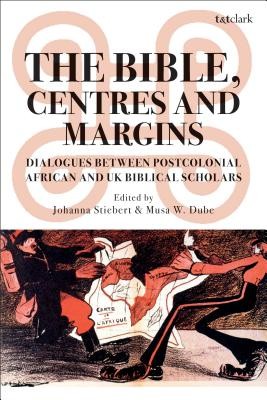
- We will send in 10–14 business days.
- Publisher: T&T Clark
- ISBN-10: 0567667243
- ISBN-13: 9780567667243
- Format: 15.6 x 23.4 x 1.1 cm, hardcover
- Language: English
- SAVE -10% with code: EXTRA
The Bible, Centres and Margins (e-book) (used book) | bookbook.eu
Reviews
Description
There has rarely been an effort to address the missing dialogue between British and African scholars, including in regard to the role of British missionaries during the introduction ofthe Bible and Christianity to many parts of Africa. To break this silence, Musa W. Dube and Johanna Stiebert collect expressions from both emerging and established biblical scholars in the United Kingdom and (predominantly) southern African states.
Divided into three sets of papers, these contributions range from the injustices of colonialism to postcolonial critical readings of texts, suppression and appropriation; each section complete with a responding essay. Questioning how well UK students understand Africancentred and generated approaches of biblical criticism, whether African scholars consider UK-centric criticism valid, and how accurately the western canon represents current UK based scholarship, these essays illustrate the trends and challenges faced in biblical studies in the two centres of study, and discusses how these questions are better answered with dialogue, rather than in isolation.EXTRA 10 % discount with code: EXTRA
The promotion ends in 20d.10:38:08
The discount code is valid when purchasing from 10 €. Discounts do not stack.
- Publisher: T&T Clark
- ISBN-10: 0567667243
- ISBN-13: 9780567667243
- Format: 15.6 x 23.4 x 1.1 cm, hardcover
- Language: English English
There has rarely been an effort to address the missing dialogue between British and African scholars, including in regard to the role of British missionaries during the introduction ofthe Bible and Christianity to many parts of Africa. To break this silence, Musa W. Dube and Johanna Stiebert collect expressions from both emerging and established biblical scholars in the United Kingdom and (predominantly) southern African states.
Divided into three sets of papers, these contributions range from the injustices of colonialism to postcolonial critical readings of texts, suppression and appropriation; each section complete with a responding essay. Questioning how well UK students understand Africancentred and generated approaches of biblical criticism, whether African scholars consider UK-centric criticism valid, and how accurately the western canon represents current UK based scholarship, these essays illustrate the trends and challenges faced in biblical studies in the two centres of study, and discusses how these questions are better answered with dialogue, rather than in isolation.

Reviews